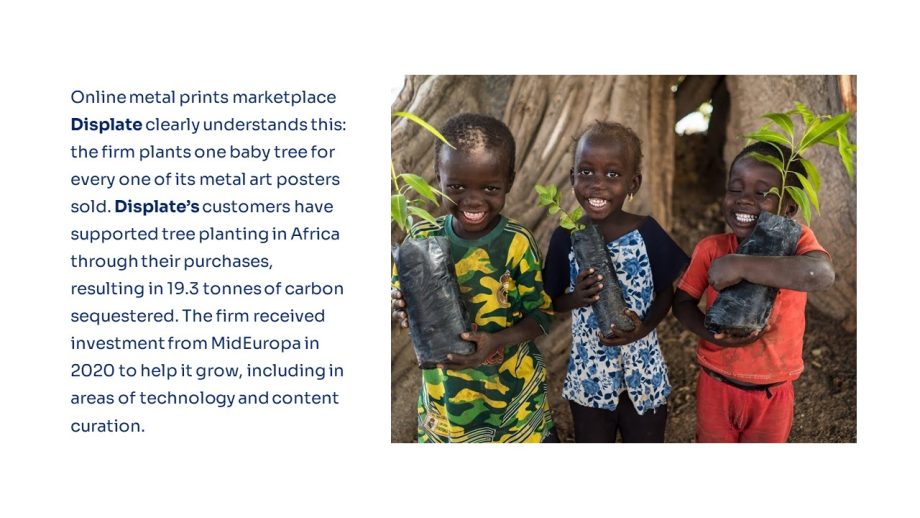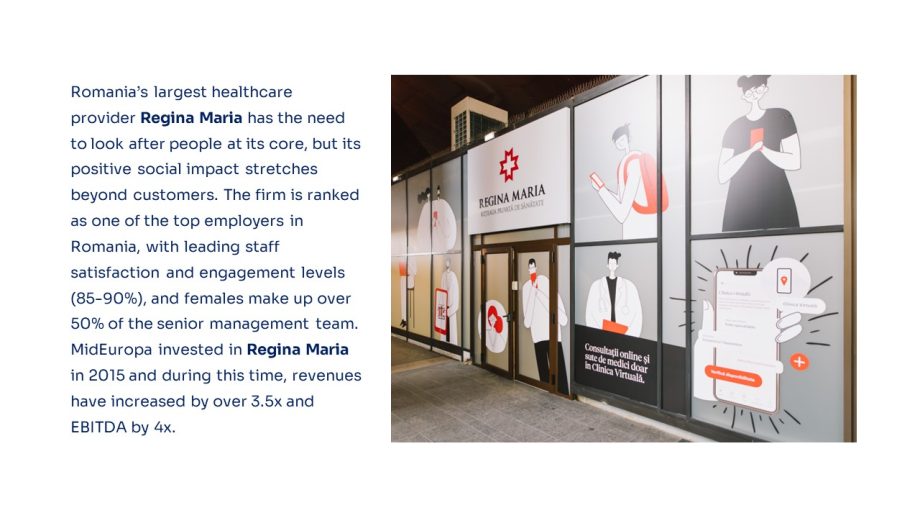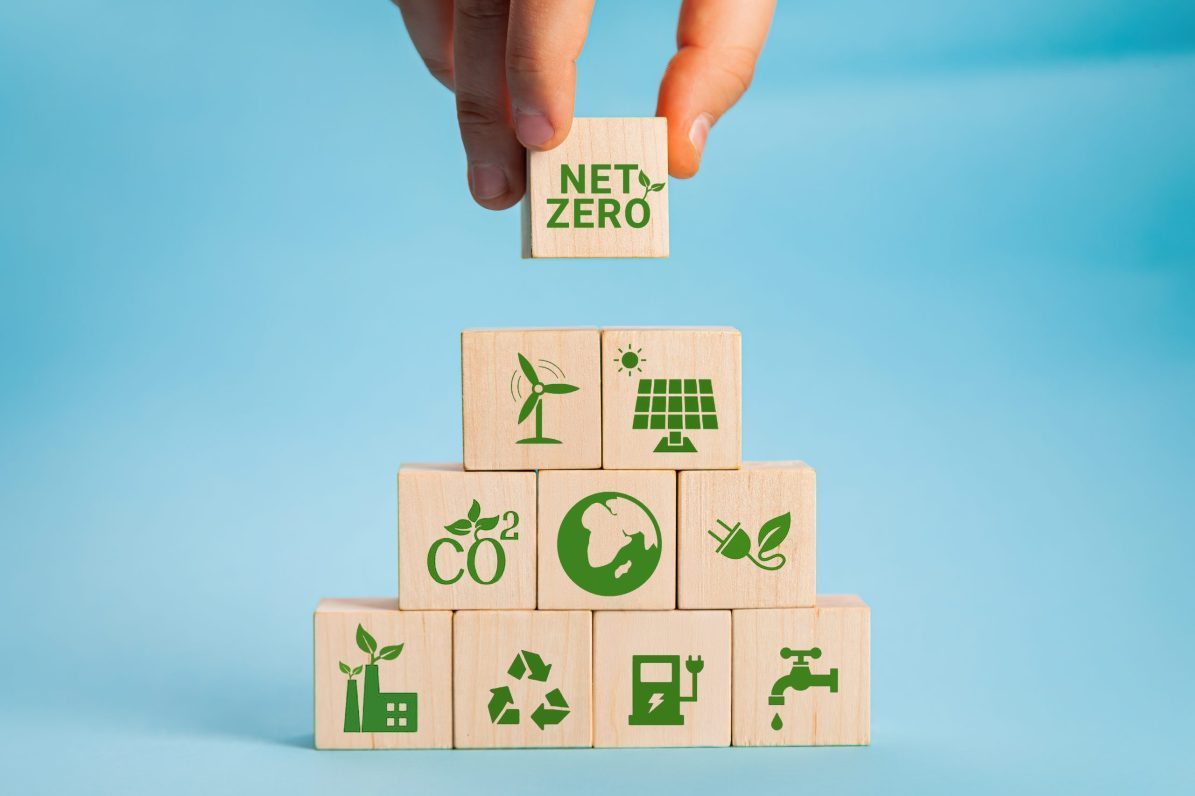Embracing ESG to accelerate growth
It’s often been said and accepted that the pandemic was an accelerant of change. While leaps in technology and digital are often talked about, the ESG landscape has also made huge bounds. MidEuropa brought its portfolio together recently to talk more about this.
The term ESG isn’t new, but the pace and breadth of firms embracing it is. The reasons for this are manifold: initially ESG and associated frameworks were driven by investor demand and so mostly large publicly traded corporates embraced it, and then over the years a plethora of guidance sprung up – which is increasingly making its way into legislation.
“What I see is that ESG is maturing,” says Matt Smith, Technical Director at Anthesis, a global sustainability consultancy which is helping MidEuropa execute on its ambitious ESG agenda. “The pandemic showed us where shocks to supply chains have exposed areas of weakness. ESG is risk management, identifying opportunity and positioning the business for future resilience, with a strong ESG framework increasingly equating to a more sustainable and thus future-proof business.”
MidEuropa is attuned to the significance of a meaningful, measurable framework for its own business and the ones it backs. Earlier this year the firm appointed Vesna Sipp to spearhead its ESG and diversity efforts and she is building a team around her. She says: “MidEuropa stands out in the Central European region for its ambition, including around responsible investing. A number of portfolio companies are already making strides in the right direction, and we are working with them across the board to improve further, including agreeing science-based targets as baselines to measure against.”
There have been a number of fundamental changes in the ESG agenda in the last 12 months:
ESG has gone from being largely voluntary to being supported by an ever-growing regulatory framework. Initially ESG was very much investor-driven, with mainly large, publicly listed corporates seeking to appear at the forefront of responsible investing. Now yesterday’s advice has become today’s regulatory framework, catalysing a large and growing number of firms across various sectors and sizes globally to take note. Concerns around greenwashing are leading to greater scrutiny, while different agencies can assign different scores, further fuelling the need for harmonisation and regulation.
Examples of recent regulation:
- Sustainable finance disclosure regulations (SFDR) is a standardised EU framework requiring financial service providers and owners of financial products to assess and publicly disclose performance against non-financial ESG indicators to promote transparency.
- Corporate Sustainability Reporting Directive (CSRD) is coming into force in the EU, which will increase the number of organisations needing to report from 10k to 50k.
- Task Force on Climate-Related Financial Disclosures (TCFD) aligned reporting on climate change. It started off as advisory in 2017 but became obligatory for PRI signatories in 2021 and is now being mandated by countries, such as the UK, for select organisations to help companies disclose climate-related risks and opportunities to stakeholders.
Precisely how to measure emissions is changing too, and that’s been a big shift in the last year. Whereas carbon offsetting was a big goal a few years ago, net zero became the buzz word more recently. A more difficult target to reach, but which achieves more. Now the new gold standard for greenhouse gas emission reduction is science-based targets (SBTs). SBTs are a way for companies to define emissions reduction targets and, unlike traditional potential-based targets, focus on the quantity of emissions that needs to be reduced in order to meet the targets set out in the Paris Climate Agreement, limiting global warming to 1.5°C.
Firms now widely accept that ESG makes good business sense. ESG isn’t just sticks but also some juicy carrots, and firms are increasingly equating an effective ESG framework with future robustness. This matters more than ever in a backdrop of increasing adversity because the pandemic meant the world woke up to existential and systemic risks. For example, now more than ever we are seeing the importance of a diverse and robust supply chain, and it’s increasingly apparent you also need diversity in energy sources.
ESG goes beyond risk mitigation: With activism spreading beyond university campuses to wider cities and beyond, it’s clear much of the world is feeling impassioned by these causes and companies have to take notice. If you want to attract and retain the best talent, your strategy and communications must reflect what’s happening in the world today, with millennials particularly placing importance on a company’s sustainability when it comes to career choices. These same people are consumers, and increasingly consumer and customer purchasing decisions are being based around the sustainability performance of companies and their products.


Vesna notices the conversation shifting. “A lot of the discussion is not just about the risk but also the opportunity. It’s not purely a defensive expenditure to comply with regulations, but rather one to drive growth in the top and bottom lines.”
Responsible investment has been an inherent part of MidEuropa’s investment strategy since inception, and the firm is currently stepping up its ESG efforts at the firm and portfolio level. As a firm, MidEuropa is a signatory of the UN PRI and a member of Initiative Climat International.

